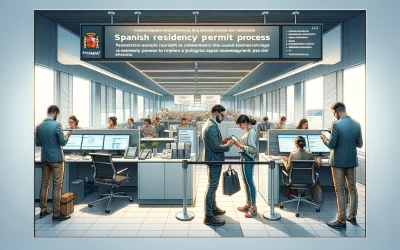WE ARE A SPANISH FIRM
Advisors Costa Blanca
We provide a full range of services for expats in Spain and make your life easier.
We help expats in Spain.
Services
Spanish Residency
If you want to move to Spain and stay longer than 3 months, you will need a residency card. We can help all citizens from the European Union as well as their family members. We can help you and explain when you become a Spanish tax resident.
NIE number and Social Security number
The N.I.E. certificate is a Tax Identification Number in Spain and it doesn’t expire. We can assist you to get your NIE number and appointment online. You will need it for work, buying a house, buying a car etc…
Spanish SIP card / Spanish Healthcare
A SIP card is a personal card that allows you to access to the Spanish Healthcare System free.
You can have it If you a Spanish resident and pensioner, also if you are working in Spain or if you have been resident for more than one year.
Spanish Tourist Licence and Rental Tax
It is obligatory for all owners to have it for rent apartments short term in Valencia and Murcia. If you are renting out your property and you are non-resident in Spain, you are required to pay a rental tax every quarter.
Spanish Driving Licences
If you buy a car in Spain, the paperwork to transfer it is very different to that which you are probably familiar with. It is extremely difficult to change car ownership in Spain.
Spanish will services
If you own a property, car, bank account or business in Spain you should have a Spanish Will. The inheritance law in Spain is different from that which you are familiar with.
If you have a will in Spain, the inheritance process will be faster, easy and cheaper than if you only have a will in your home country.
WHY CHOOSE US SOLVING YOU PROBLEMS IN SPAIN
We have helped many clients in theses years.
WHY WE ARE DIFFERENT
Advisors Costa Blanca established in 2015 and have provided integral solutions to our expats in Spain clients ever since.
It’s our priorty to ensure effective and timely communication in English, in person or online.
We have realised, through our long-standing experience, that foreigners in Spain can have a multitude of problems that they need assistance with.
We know how important personal attention is and we are reasonably priced.
ADVISORS COSTA BLANCA BLOG
Spanish residency permit process
If you're considering moving to Spain, whether for personal, professional, or investment reasons, understanding the process of obtaining residency in this country is crucial. Obtaining residency in Spain can open doors to a life full of opportunities, but the process...
Gardening Services for Expatriates and Tourists: Green Solutions at Your Fingertips
Living abroad or enjoying a vacation can be a wonderful experience, especially when you have access to a beautiful and well-maintained garden. However, keeping a green space in top condition away from home can present unique challenges for expatriates and tourists....
Pest Control for Expatriates and Tourists: Sandoval Environmental Health and Pest Solutions
Living abroad or traveling can be an enriching experience, but it also comes with its set of challenges, including dealing with pests in a new environment. Sandoval Environmental Health and Pest Solutions specializes in providing comprehensive pest control services...



